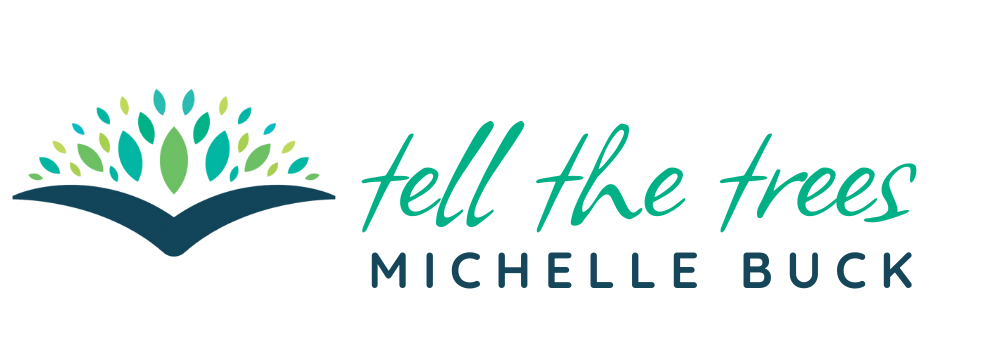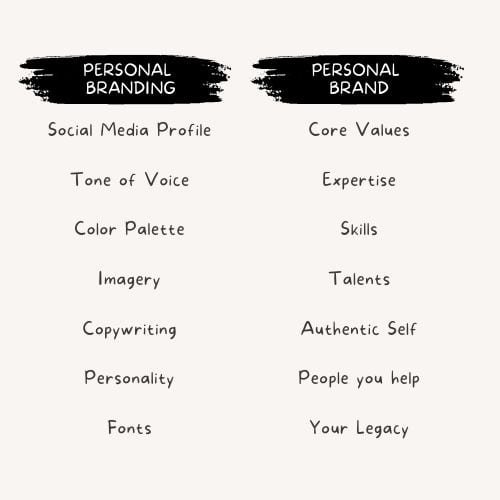by Michelle
Share
by Michelle
Share

Introduction to Building an Author Platform Online
As a new author, you’ve probably thought about building your author platform online or creating an author bio. You might have questions such as:
- What is an author platform?
- Should I have a website and social media?
- What’s the best way to promote my books?
- Why does any of this matter?
In the age of technology we live in, having an online presence is no longer just a trend.
Let’s look at how you, as a first-time author, can connect with your readers (or target audience), build a tribe of loyal fans, and successfully promote your books.
What is an Author Platform?
Your author platform is your online visibility. It encompasses various elements such as social media, website, blog, and networking with fellow authors. It’s where readers and potential readers will come to find you.
As a first-time author, you will want to engage your target audience, build community, showcase your writing, and keep your readers up-to-date on your latest and greatest news.
Once you put the pieces in place, your website and online presence will help you gain credibility and improve your reach as an author.

Benefits of Having an Author Platform
Building an online platform as an author is one of the most beneficial things you can do. Here’s 3 benefits to keep in mind.
Benefit #1:
It helps you establish your presence in the digital realm, making it easier for readers to find and connect with you.
Consider the online world as a highway. Your website is the main highway. For a reader to find the main highway, they will need to know which roads to take to find you.
Let’s say you write a guest post and it gets published on a writing resource blog. That blog will have links to your website which allow readers to find you. The author of the blog might post links to the guest post on Facebook and LinkedIn. Other people might click on those posts and visit the blog, which again leads them to your website.
These “in-roads” from other sites and platforms can include a variety of ways to find you. Once a reader “arrives” on your page, they can find more about you or contact you for opportunities.
Benefit #2:
Creating an online platform allows you to showcase your writing, expertise, and personality, helping you to build credibility and trust with your audience. It provides a platform for you to engage directly with your readers, fostering a sense of community and loyalty around your work.
Many authors have Facebook groups which allow them to answer reader questions and interact easily with their audience. Replying to comments and emails is a great way for readers to see you as human and real. Having an online platform can bring out your personality and help others discover your personal brand.
Benefit #3:
An online platform can serve as a powerful marketing tool, enabling you to promote your books, events, and other projects to a wider audience. Use an email list to keep your readers “in the know” with events or early promotions on your books. Your platform is more than just marketing. It’s a way to bring your message to more people with a variety of avenues.
A well-developed online platform can open up new opportunities for you as an author, such as speaking engagements, collaborations, and partnerships. It’s important to develop your author platform and create a place to engage and connect with your target audience.
How To Build Your Personal Brand
Let’s define personal brand and personal branding.
A personal brand is essentially the end result – the image or perception that others have of you.
On the other hand, personal branding is the deliberate strategy you employ to communicate who you are to others.
Think of it this way: personal branding is proactive. It involves planning and taking intentional steps to shape how you’re perceived. Every action you take is purposeful, from the colors and aesthetics you choose to the messages you convey. These are all elements of personal branding—decisions made now to yield desired outcomes in the future.
Ultimately, personal branding culminates in your personal brand—the overall impression you leave on a community. This includes your identity, audience, and the value you offer through expertise, values, skills, and talents.
Here are some ways to think through your story and brand:
- What have you learned about yourself from personality and assessment tests?
- What are your strengths and weaknesses?
- What soft and hard skills have you gained?
- Who are the people you help?
- What do you want your legacy to be?
- Are you serious, funny, quiet, or loud?
- Who do you want to be? What are you working towards becoming?
Writing an Author Bio
Write an author bio for your author platform and use it in multiple places, such as your About page on your website and your Facebook, Instagram, and other social media sites. You’ll want to strike the right balance between professionalism and personality.
As far as length, create an abbreviated version for social media. For your website, you can add more details.
Your bio should consist of:
- Understanding how you started and the brand story
- Describing what you provide or how you serve your readers
- Explaining your writing process or style
- Putting a face and personality to your books
Here are some tips that can help you craft an About page on your website:
- Introduce Yourself: State your name and what you do as an author. This should be brief and straightforward.
- Highlight your achievements: Mention anything that is notable and relates to your writing career (awards, publications, ect.)
- Share your passions: Express your love for writing and what motivates you to create.
- Define your niche: What kind of content can your readers expect from you?
- Inject some personality: Let your voice shine through your writing.
- Include relevant details: Don’t forget to include your social links, Amazon page, or other websites that are important for your reader to know about.
- End with a call-to-action: Leave your readers with a way to explore more of your work or join your email list.
If you are looking for inspiration, research others in your niche and look over their materials. Visit their website or social pages and pay attention to how they blend their brand into their marketing materials. You can gain insight by reading their content and analyzing their brand tone, personality, and graphic elements.
Create an author mailing list
A website is much more than just a landing page. It’s also a great way to collect information from your readers through Email Marketing. The basic steps are:
- Set Up an Opt-in Form – this is a form that will live in your footers, headers, and blog posts and allows readers to sign up.
- Offer an incentive – Include a freebie that they can download if they sign up. This could be a free video, a chapter of your book, or anything else your audience would find valuable.
- Promote your email list elsewhere – Share blog posts or other content and include a link to your opt in form in those posts. Then share across social media.
- Send emails regularly – Once you start getting email sign-ups, be sure to consistently email your audience timely messages that offer value.
- Engage with your readers through email – You can create surveys or offer valuable content to your readers, which will continue to nurture the relationship.
- Grow your email list – Find other ways to grow your emails list such as guest posting, being a participant in a podcast or summit, and then sharing your freebies on those channels.
Building an email list is all about fostering a community of engaged readers who can’t wait to hear from you. When building a personal brand, your social media, website, and email list should focus on bringing value to your community of readers.
How to use Social Media Channels as an Author
As an author, you don’t need to be on every platform. Just pick one!
Do a little research. Where does your target audience hang out? What social media platforms do they use the most?
For instance, Instagram and Tik-Tok are great for a younger audience, while Linkedin is useful for those who write non-fiction. Whoever your audience is, see what platform they are using and start engaging there. Also think of platforms you enjoy using and would be easy for you to build a reader base.
Social media isn’t about blasting your promotions and sales. It’s about engaging and connecting. The biggest mistake I see whether it’s an author or a business is the idea that social media is for pushing your product on to your audience. That will quickly end up in disaster if that is your game plan. Instead, use social media to connect with others by leaving comments, sharing your journey, and being as human as possible.
Don’t be afraid to reach out to fellow authors, bloggers, or influencers in your genre for collaboration opportunities. Guest blog posts, joint giveaways, or even just a friendly shoutout can help expand your reach and introduce your work to new audiences.
Building your author platform is a process
Developing your author platform is a gradual process, not an instant achievement. Think of it as constructing a sturdy foundation, where each step contributes to the growth and solidity of your brand. Having a strong online presence through social media and a professional website is a must, but fostering relationships with readers and fellow writers is just as crucial. Consistency, adaptability, and perseverance are key as you navigate this journey.
Embrace small steps, celebrate achievements, and stay dedicated to building a strong author bio and author platform.
Tell the Trees is supported by its readers. When you make a purchase using links on this site, it may result in affiliate commission. Please visit my affiliate disclosure page for more information.
Let's Discuss It
Accessibility isn’t just nice to have; in fact, it’s now more important than ever. In 2025, over 1.3 billion people worldwide live with some form of disability, and many use e-readers or screen readers to access digital content. Yet most self-published authors continue to create ebooks that unintentionally exclude these readers. Microsoft Word, a tool
After my post about the European Accessibility Act, I got some fantastic questions from you that made me realize we need to have a more practical conversation especially regarding digital products. My original post focused on what’s been published — either written by lawyers for lawyers or aimed at big publishers with compliance departments. But what
One of the most often missed topics when it comes to writing and your office workspace is productivity. As a writer, you are focused on drafting, editing, book covers, ARC Reviews, and other important self-publishing topics, we forget that there are more efficient ways to do things. In your office or writing space, you might
The biggest threat for authors on Substack isn't competition or algorithm changes. It's something far more basic: the platform itself. Let's learn more.









